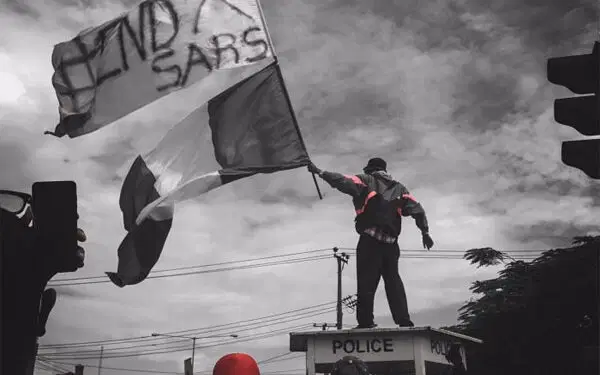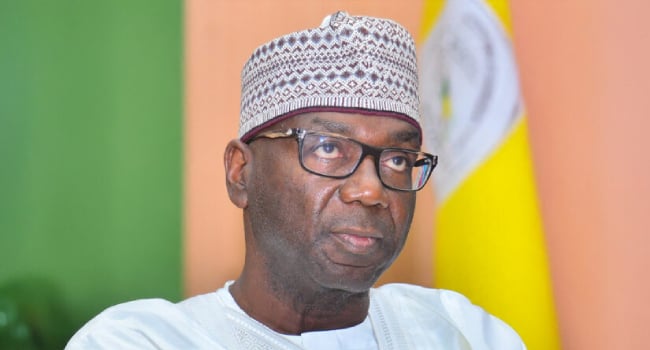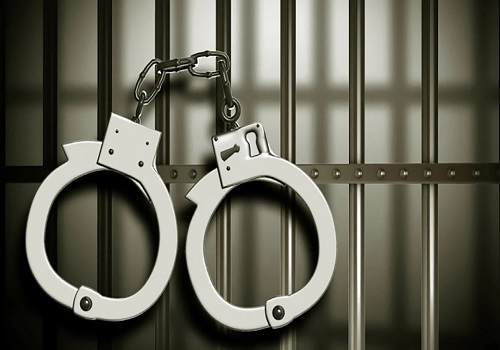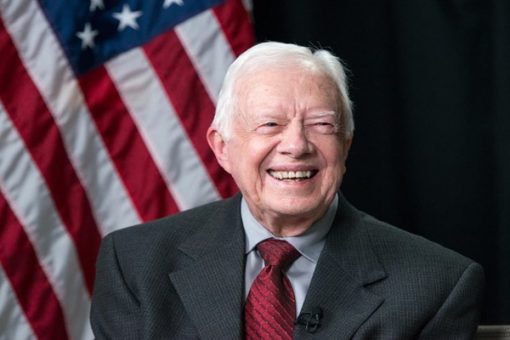Five years ago, the streets of Nigeria trembled with a single cry — “End SARS! End impunity!” Young Nigerians, tired of fear and injustice, poured into the streets with placards, chants, and courage that shook the nation. From Lagos to Abuja, Port Harcourt to Jos, the message was the same: enough was enough.
Today, October 20, marks the fifth anniversary of the #EndSARS protests — a movement that awakened a generation but also exposed the deep scars of a nation still struggling with accountability and justice.
This report takes a look back — at what sparked the protests, the people who defined them, the lives lost, and why justice still feels like a distant dream.
The Spark That Ignited a Generation
The story of #EndSARS is one of bottled-up frustration that finally exploded. The Special Anti-Robbery Squad, or SARS, was set up in the 1990s to fight crime. But over the years, it became a symbol of everything wrong with policing in Nigeria.
Instead of protecting citizens, SARS officers became predators — targeting young people for how they looked or dressed. Dreadlocks, piercings, tattoos, laptops — any of these could get someone harassed, extorted, or worse, killed.
By 2020, the outrage had reached its peak. Nigerians took to social media to share stories, photos, and videos of brutality. When a video surfaced of SARS officers allegedly killing a young man in Delta State, the anger turned into action.
What began as online outrage became a nationwide movement. From the bustling streets of Lagos to the corners of Ibadan, Benin, and Abuja, young Nigerians stood their ground. It wasn’t just about SARS anymore — it was about demanding dignity, freedom, and the right to live without fear.
A Leaderless Revolution
#EndSARS became known as the leaderless protest. There was no single person calling the shots, but there were voices that stood out.
Activist Segun Awosanya (Segalink) had long spoken out against police abuse. Celebrities like Falz, Mr Macaroni, Runtown, Tiwa Savage, and Burna Boy added their voices and presence to the streets.
Perhaps the most unforgettable moment came from DJ Switch, who livestreamed the events of October 20, 2020, at Lekki Toll Gate. Her live feed showed chaos and bloodshed as soldiers opened fire on protesters — a moment that sent shockwaves across the world.
Behind the scenes were thousands of unsung heroes — volunteer lawyers, medics, cooks, and the Feminist Coalition, which raised funds to keep the movement going.
Five years later, some of these faces have retreated from the spotlight, while others remain steadfast in advocacy. But their collective courage continues to shape how Nigerians view activism and accountability.
Lekki Toll Gate: The Wound That Won’t Heal
No site carries the memory of #EndSARS like the Lekki Toll Gate in Lagos. Once a busy commercial hub, it became the beating heart of the protests — filled with flags, chants, candlelight vigils, and unity.
But on October 20, 2020, everything changed. The lights went out. CCTV cameras stopped working. Then, gunfire erupted. Soldiers opened fire on unarmed protesters waving the Nigerian flag and singing the national anthem.
What followed was chaos — lives lost, people injured, and a flood of conflicting reports. The government downplayed the events, calling it “a disputed shooting,” while victims and eyewitnesses called it a massacre.
Today, the toll gate has been rebuilt, but for many Nigerians, it remains a symbol of betrayal and unfinished justice. Each year, young people return to lay flowers, hold vigils, and remember — even as police continue to disperse them.
Justice Promised, Justice Delayed
In the aftermath, the government set up judicial panels of inquiry across states. The Lagos Panel stood out — confirming that unarmed protesters were indeed shot and killed by soldiers at Lekki Toll Gate.
The panel recommended compensation and prosecution of officers involved. But five years later, much of that report remains unimplemented.
Some victims’ families have received compensation; others are still waiting. Many police officers accused of abuse remain in service. Reforms promised by the government have barely scratched the surface.
Even the ECOWAS Court of Justice ruled in 2024 that Nigeria violated the rights of protesters at Lekki and must pay reparations — a ruling yet to be enforced.
Why Justice Still Feels Out of Reach
According to legal experts, the problem isn’t the absence of laws — it’s the lack of will.
Kunle Edun, SAN, called the government’s disregard for court rulings “an invitation to anarchy.” He said many of those in power ignore judgments because they know there are no consequences.
Evan Ufeli, head of the Cadrell Advocacy Centre, said the problem lies in “institutional cover-ups and weak political will.”
Deji Adeyanju, another human rights lawyer, blamed a “culture of impunity,” saying, “The same system that created SARS is still in power. Without deep reforms, nothing will change.”
And Amanda Demechi-Asagba, who served on the Lagos Panel, said victims deserve more than sympathy: “They deserve restitution, not rhetoric.”
Read Also;
Six #EndSARS Protesters Discharged After Nearly Four Years in Custody by Lagos Court
The Echoes of October
Five years on, the wounds of #EndSARS still bleed quietly. Families of victims continue to wait for answers. Protesters are still arrested for holding memorials. And despite SARS being “disbanded,” reports of police brutality persist under new names.
For some, #EndSARS was a painful chapter best forgotten. For others, it remains a symbol of hope — proof that ordinary Nigerians can stand up to power.
But one thing is clear: until justice is done, the chants of 2020 will never fade.
“Soro Soke,” they said. Speak up.
The question now is — will Nigeria finally listen?




